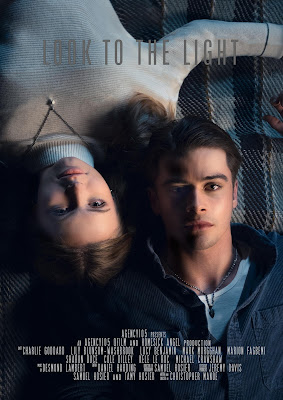The Evolution of the Marvel Cinematic Universe: A Decade of Innovation and Revolution in Film
The Marvel Cinematic Universe (MCU) has revolutionized the film industry in the past decade, changing the way we experience movies and the way studios approach franchise filmmaking. From Iron Man (2008) to Avengers: Endgame (2019), the MCU has grown into a global phenomenon, breaking box office records and captivating audiences worldwide. In this blog post, we'll explore the evolution of the MCU, its innovative storytelling, and its impact on the film industry.
Phase 1: Origins (2008-2012)
1. Iron Man (2008) - The first MCU film, directed by Jon Favreau, introduced Tony Stark/Iron Man (Robert Downey Jr.) and set the tone for the franchise.
2. The Incredible Hulk (2008) - Directed by Louis Leterrier, this film explored the complexities of Bruce Banner/Hulk (Edward Norton).
3. Iron Man 2 (2010) - Favreau returned for the sequel, which expanded on Tony Stark's character and introduced Black Widow (Scarlett Johansson).
4. Thor (2011) - Kenneth Branagh's directorial debut in the MCU introduced the god of thunder, Thor (Chris Hemsworth), and the realm of Asgard.
5. Captain America: The First Avenger (2011) - Joe Johnston's film explored the origins of Steve Rogers/Captain America (Chris Evans) during World War II.
6. The Avengers (2012) - Joss Whedon's game-changing film brought together the core team of Iron Man, Captain America, Thor, Hulk, Black Widow, and Hawkeye (Jeremy Renner).
Phase 2: Expansion (2013-2015)
1. Iron Man 3 (2013) - Shane Black's directorial debut in the MCU delved into Tony Stark's personal struggles and introduced the Mandarin (Ben Kingsley).
2. Thor: The Dark World (2013) - Alan Taylor's film explored the consequences of the events in The Avengers and introduced the Dark Elves.
3. Captain America: The Winter Soldier (2014) - The Russo brothers' directorial debut in the MCU revolutionized the franchise with a political thriller tone.
4. Guardians of the Galaxy (2014) - James Gunn's film introduced a new team of intergalactic misfits, including Peter Quill/Star-Lord (Chris Pratt).
5. Avengers: Age of Ultron (2015) - Whedon's sequel explored the team's dynamics and introduced Wanda Maximoff/Scarlet Witch (Elizabeth Olsen) and Vision (Paul Bettany).
Phase 3: Convergence (2016-2019)
1. Captain America: Civil War (2016) - The Russo brothers' film divided the Avengers and introduced Black Panther (Chadwick Boseman) and Spider-Man (Tom Holland).
2. Doctor Strange (2016) - Scott Derrickson's film introduced the Sorcerer Supreme, Doctor Strange (Benedict Cumberbatch).
3. Guardians of the Galaxy Vol. 2 (2017) - Gunn's sequel explored the Guardians' past and introduced Ego (Kurt Russell).
4. Spider-Man: Homecoming (2017) - Jon Watts' film rebooted the Spider-Man franchise with a fresh, youthful tone.
5. Thor: Ragnarok (2017) - Taika Waititi's film reinvented the Thor franchise with a humorous, cosmic tone.
6. Black Panther (2018) - Ryan Coogler's film explored the world of Wakanda and the legacy of T'Challa/Black Panther.
7. Avengers: Infinity War (2018) - The Russo brothers' film brought together the entire MCU for an epic showdown against Thanos (Josh Brolin).
8. Ant-Man and the Wasp (2018) - Peyton Reed's film introduced Hope van Dyne/Wasp (Evangeline Lilly) and explored the Quantum Realm.
9. Captain Marvel (2019) - Anna Boden and Ryan Fleck's film introduced Carol Danvers/Captain Marvel (Brie Larson) and explored the 1990s.
10. Avengers: Endgame (2019) - The Russo brothers' epic conclusion to the Infinity Saga wrapped up the stories of the original Avengers team.
Impact on the Film Industry:
1. Franchise filmmaking: The MCU's success has inspired other studios to adopt a similar approach, creating interconnected franchises.
2. Cinematic universes: The MCU has popularized the concept of cinematic universes, where multiple films are connected by a shared narrative.
3. Serialized storytelling: The MCU's use of serialized storytelling has influenced TV shows and other films to adopt a similar approach.
4. Diversity and representation: The MCU has made a conscious effort to include diverse characters and representation, paving the way for more inclusive storytelling.
















0 Comments